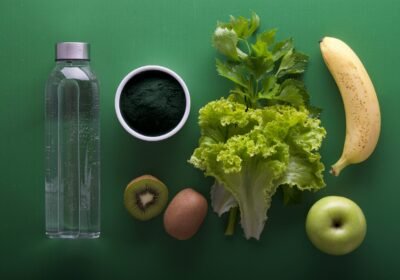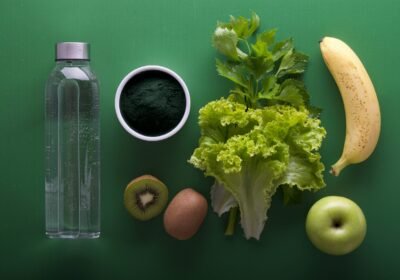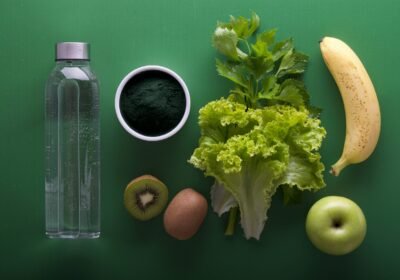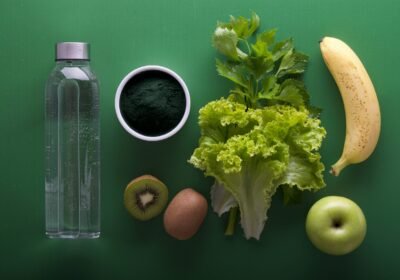Discover the Moldovan Diet Trend of 2023: Embracing Fermented Foods for Ultimate Health
The Rising Popularity of Fermented Foods in Moldova
Recently, Moldova has witnessed a remarkable shift towards the consumption of fermented foods, which are being recognized for their numerous health benefits. The trend, largely driven by an increasing awareness of gut health and overall wellness, is capturing the interest of health-conscious individuals across the nation. Traditional fermented foods such as string cheese and various pickled vegetables have always been a staple in Moldovan households, but they are now gaining prominence as integral components of contemporary diets.
The rising popularity of fermented foods can be attributed to the growing body of research that highlights their beneficial properties. Fermented foods are rich in probiotics, which are beneficial bacteria that contribute to gut health. These products can enhance digestion, support immune function, and may even improve mood and mental health. Moreover, fermented foods are often seen as natural and wholesome options in a time when many consumers are becoming increasingly skeptical of processed foods.
In Moldova, the health trend is underscored by social media influencers and nutritionists who advocate for the incorporation of fermented foods into daily diets. They emphasize that these foods not only add diverse flavors to meals but also provide essential nutrients that strengthen the body’s resilience. Additionally, local markets and health food stores are now showcasing a wider variety of fermented products, further fueling interest in this dietary trend.
As this healthy movement grows, many Moldovans are rediscovering the rich culinary heritage associated with fermentation. By embracing these age-old practices, they are not only prioritizing their health but also fostering a greater appreciation for traditional Moldovan cuisine. Adopting fermented foods is proving to be an effective way for individuals to enhance their well-being while reconnecting with their cultural roots.
Health Benefits of Fermented Foods: A Closer Look
Fermented foods have surged in popularity, especially within the context of the Moldovan diet in 2023. This trend is largely attributed to the numerous health benefits linked to the consumption of these foods. Fermentation introduces beneficial bacteria, known as probiotics, which play a crucial role in maintaining and enhancing gut health. Studies indicate that a healthy gut microbiome can significantly improve digestion and nutrient absorption, potentially leading to better overall health.
One of the primary health advantages of fermented foods is their ability to aid digestion. Foods such as sauerkraut, kefir, and yogurt contain live cultures that help break down food in the gastrointestinal tract. This digestive support can alleviate bloating and discomfort, making meals more enjoyable. Additionally, the prebiotics found in these foods may further promote the growth of healthy gut bacteria, reinforcing the positive effects on digestive health.
Furthermore, fermented foods have shown promising potential in boosting the immune system. Research suggests that a balanced gut microbiome can enhance the body’s immune response, making it more capable of fending off infections and illnesses. Some studies even propose that probiotics may help reduce the incidence of respiratory and gastrointestinal infections, a relevant consideration during peak illness seasons.
Another noteworthy benefit is the potential mental health enhancement attributed to fermented foods. Emerging evidence indicates that gut health is closely linked to mental health, with studies suggesting that probiotics may alleviate symptoms of anxiety and depression. This connection underscores the holistic advantages of incorporating fermented foods into one’s diet.
In summary, the trend of embracing fermented foods within the Moldovan diet highlights their various health advantages, including improved digestion, enhanced gut health, and strengthened immunity. As science continues to explore these benefits, the popularity of fermented foods is likely to persist and further evolve in 2023 and beyond.
How to Incorporate Fermented Foods into Your Daily Diet
As health-conscious individuals increasingly seek out the benefits of fermented foods, incorporating these nutrient-rich options into your daily diet can be both simple and enjoyable. Fermented foods, such as sauerkraut, kefir, and yogurt, are packed with probiotics, which contribute positively to gut health and overall wellness. To seamlessly integrate these foods into your meals, consider the following practical tips.
Start your day with a serving of fermented dairy, such as yogurt or kefir. These can easily be paired with fresh fruits, nuts, or honey to create a nutritious breakfast. In Moldova, local yogurt varieties, like “iaurt”, are widely available and provide a delicious source of probiotics. You may also want to experiment with making your own yogurt at home for added freshness and a customized flavor.
During lunchtime, adding fermented vegetables can enhance both the nutrition and flavor of your dishes. For instance, topping a salad with sauerkraut or pickles not only adds tanginess but also boosts the probiotic content. Look for locally-produced options in market stalls or specialty grocery stores to ensure authenticity and quality.
For a simple dinner recipe, consider creating a stir-fry that features fermented soy sauce or miso, combined with a variety of fresh vegetables and a protein source like chicken or tofu. This versatile dish can be made with local ingredients easily sourced in Moldova.
Snacking can also become healthier by including fermented foods. String cheese made with live cultures, or fermented snacks like kimchi, provide interesting flavor profiles while delivering essential nutrients. Keep an eye out for various regional options at local markets.
As you begin to embrace fermented foods in your daily routine, remember to introduce them gradually to allow your digestive system to adapt. This strategy will help you maximize the health benefits while enjoying the rich culinary traditions found within Moldova’s food culture.
Moldova’s Local Fermented Delicacies: A Culinary Journey
Moldova, a small Eastern European country, is rich in culinary traditions and cultural practices, particularly when it comes to food preservation through fermentation. Fermented foods, increasingly embraced in modern health movements, have a long-standing significance in Moldovan cuisine. These delicacies not only offer a unique taste but also boast numerous health benefits that are gaining global recognition.
One of the most cherished fermented foods in Moldova is “mămăligă,” a porridge made from cornmeal. While primarily known as a staple food, its fermentation process enhances its nutritional profile, leading to improved digestion and increased bioavailability of nutrients. Another prominent item is “borș,” a sour soup made from fermented wheat bran or barley. This traditional dish is not only a culinary delight but also a source of probiotics, which play a crucial role in gut health.
Additionally, “plăcintă” is a popular pastry in Moldova that often incorporates fermented fillings such as cheese or apples. The fermentation of the dough adds a distinct flavor and texture, making it a preferred snack or meal accompaniment among locals. Throughout history, these foods have been prepared to preserve the harvest, showcase local ingredients, and contribute to communal gatherings, reflecting Moldova’s agricultural roots.
As the modern health trend points towards the consumption of fermented foods, Moldovan traditions stand out for their ability to combine nutrition and cultural heritage. The culinary practices are being preserved and embraced as more individuals recognize the importance of fermented foods for their health benefits. Through local delicacies, Moldova continues to showcase how traditional methods can align with contemporary dietary needs, promoting not only health but also cultural appreciation among its populace and beyond.









